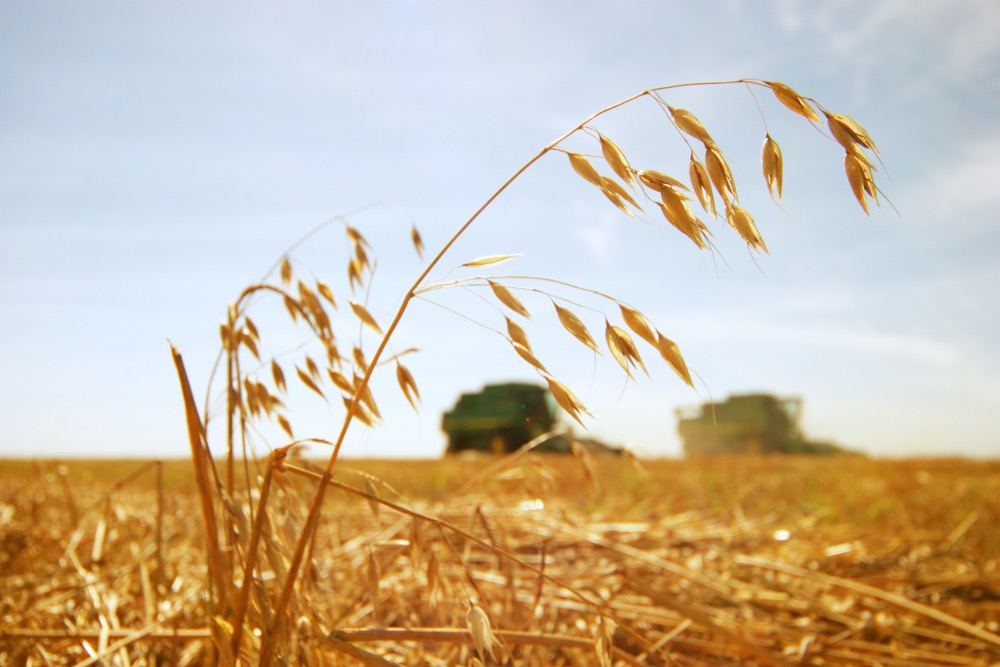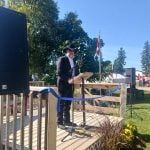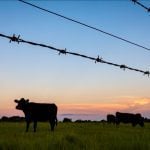A farmer-led group is hoping to cut through the politics surrounding climate issues by bringing together a diverse group of Prairie farmers and ranchers for discussions around sustainability.
“There’s a number of loud voices that tend to dominate the conversations,” says Ian McCreary, a grain and cattle farmer from Bladworth, Sask. McCreary is co-leading the Prairie Farmer and Rancher Forum with Gord Bacon, former CEO of Pulse Canada. Farmers for Climate Solutions is organizing the forum.
McCreary says many of the innovative farmers and ranchers aren’t talking to each other about what they’re doing to improve sustainability on their farms. The forum organizers plan to bring together 36 randomly selected producers for three meetings, held in Alberta, Saskatchewan and Manitoba. Each meeting will run over two-and-a-half days.
Read Also

Alberta Crop Report: Two sides of the same weather coin
Wet weather in the northern half of Alberta and dry weather in the south delayed harvest across the province during the week ended Aug. 19, 2025.
Some producers will have received invitations in the mail, but other producers from the three Prairie provinces are welcome to register as well. The more people who register, the more representative it will be of western Canadian viewpoints, McCreary says.
Producers do not need to hold any particular view on the environment or climate change to participate, but they must earn most of their income from farming or ranching, and be able to attend all three forums. Forum organizers expect to recruit people with diverse opinions.
McCreary’s wife, Mary Smiley, is facilitating the discussions, and her goal will be to set the tone “to make sure that everybody, regardless of how much their opinions differ, treat each other respectfully,” says McCreary.
Participating producers will also get a phone call before the first session to ask questions, so forum organizers can build the agenda around those questions, he adds.
“And then similarly, the agenda for the second set of meetings will be determined by the discussions and the questions that come out of the first set of meetings.”
McCreary says that to some extent they’ll be able to manage diverse views “by answering people’s questions, providing information and creating an environment where people who disagree with each other can have respectful conversations about ideas that have the potential to work for more than just individuals.”
McCreary sees a few potential outcomes from the forums. One is a report that outlines how to create a more sustainable future. Another is a network of farmers and ranchers who are trying new things, who can discuss what works and what doesn’t on their operations. He also hopes to find a practical way to measure gains in sustainability on the farm.
“You can’t measure nitrous oxide coming off your fields. You can’t measure methane coming off your cattle herd and it’s really difficult to know the volume of carbon dioxide that came from the nitrogen fertilizer that you used and that was produced.”
McCreary is no stranger to farm politics, having been a Canadian Wheat Board director for 10 years and having chaired a community pasture patrons association. Afte that, he decided to take a break from farm boards, unless it was focused on long-term sustainability or relations with First Nations.
While combining one day, he got a call from someone asking if he’d be interested in chairing a task force looking at climate solutions for the farm. At first he tried to deflect the request, but then looked into who else was involved.
The people involved weren’t interested in “screaming and sort of waving placards. They’re interested in trying to find solutions. And so I agreed to chair this task force.”
Farmers for Climate Solutions is a relatively young organization focused on the science around climate, as well as what’s practical for producers. Part of McCreary’s focus is keeping it as grounded as he could on Prairie issues, as it’s difficult for people from the Maritimes or Vancouver Island “to understand how vast the Prairies are.”
Interested producers can register online or by calling 1-833-537-1758. The registration deadline is Nov. 28. More information is available on the FCS website.
— Lisa Guenther is editor of Canadian Cattlemen.
















